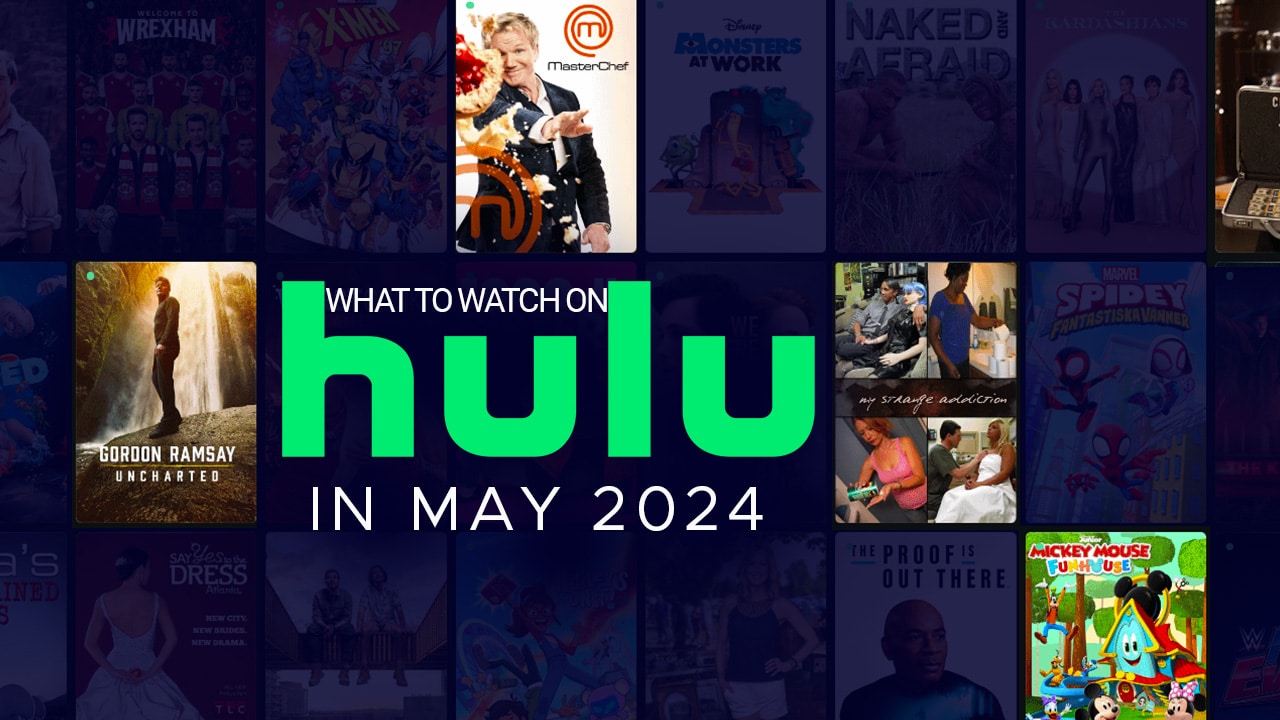Listen to the Podcast:
Internet users often encounter frustrations when search results don’t match their inquiries, one such baffling issue is the “Monkey Holding Box” phenomenon. In an unexpected twist, searching for this term yields a peculiar video of a monkey holding a box, now inexplicably ranking as top content on Google!
This blog post will delve into the core of this predicament, dissecting whether it’s an SEO trick or simply an honest oversight.
Intrigued? Read on to unravel the mystery behind these bizarre search engine outcomes.
Content Highlight
- The “Monkey Holding Box” phenomenon refers to a controversial search result on Google, where a video of a monkey holding a box ranks at the top of the first page.
- There are debates about whether this is an intentional SEO trick or an honest mistake by Google’s algorithms.
- The error has sparked discussions about transparency, accountability, and ethical practices in search engine rankings. highlighting the need for improvements in algorithm accuracy and content moderation.
The Monkey Holding Box Error
The Monkey Holding Box error refers to the controversial search results on Google for the phrase “Monkey Holding Box,” with a video of a monkey holding a box ranking at the top of the first page.
What is the Monkey Holding Box Error?
The Monkey Holding Box error centers on a peculiar misstep involving Google’s search algorithms. It manifests as a baffling video ranking at the top of Google’s first page when users input certain keywords related to monkeys and boxes.
This anomaly has stirred debates about whether it’s an honest mistake or a cunning SEO trick, sparking tech enthusiasts’ interest across the globe. At its core, the error is essentially an oversight from the Google crawler, which mistakenly placed this seemingly unconnected video in such a high-ranking position.
The video in question features clips that depict not only harmless monkey antics but also controversial content deemed offensive by some critics — thus raising eyebrows over Google’s transparency and accountability in generating accurate search results.
The YouTube Video About Monkey Holding a Box
The YouTube video titled ‘Monkey Holding a Box’ stirred up a significant amount of attention online. Known for capturing an unusual moment, the video has managed to rank at the top of Google’s search results even though it holds less relevance in aligning with users’ exact expectations from search intent related to monkeys and boxes.
This peculiar error turned heads as internet users discovered that when searching for “a monkey holding a box,” they were met with various unrelated videos and pictures showcasing people holding boxes instead of monkeys.
This unexpected slip-up by Google not only created confusion but sparked intense debate among SEO experts and general web surfers alike. The seemingly harmless misranked video symbolizes more than just an algorithmic hiccup; it highlights substantial issues concerning transparency, accountability, and ethical practices in search engine algorithms.
Despite its popularity on Google, interestingly enough, this particular ‘monkey holding a box’ didn’t reach the same level of prominence on other popular search engines such as Bing or Yahoo.
TikTok Videos and Social Media Reaction
Social media users were quick to react to the Monkey Holding Box error. Several TikTok creators made videos questioning Google’s search algorithm and sharing their shock at the unexpected results. Here are some of the notable reactions:
- A viral TikTok video viewed more than 30K times, showing a perplexed user discovering the error and asking, “Why does a search for ‘monkey holding a box’ show people instead of monkeys?”
- A tweet that read, “Google went completely left field with this Monkey Holding Box image result!”
- Many Instagram posts tagged Google, demanding an explanation for the unusual search results.
- Multiple YouTube videos delve into theories about why the ‘Monkey Holding Box’ glitch might have happened.
- Posts on Facebook groups dedicated to SEO discussions tackled whether it was an honest mistake or a flawed optimization strategy.
- Some LinkedIn articles provide detailed analysis of possible biases in Google’s algorithms, sparked by the ‘Monkey Holding Box’ debacle.
The Real Reason Behind the Error
Some speculations and theories have emerged regarding the reason behind the “Monkey Holding Box” error, with some suggesting it may be an intentional SEO trick while others believe it to be an honest mistake on Google’s part.
Speculations and theories about the Error
- There have been numerous speculations and theories surrounding the ‘Monkey Holding Box’ error.
- Some believe that it was a deliberate SEO trick, designed to manipulate search engine rankings.
- Others think that it could have been an honest mistake, possibly caused by a glitch in the algorithm.
- There are also speculations that the error was a result of outdated or incomplete data being used by the search engine.
- Another theory suggests that the error could be due to a misunderstanding or misinterpretation of user search intent.
- Some experts speculate that the error might be a result of overreliance on machine learning algorithms, which can sometimes produce unexpected results.
- There are also discussions about whether the error could be related to keyword stuffing or other black hat SEO techniques.
- Some users have even suggested that the error might be intentional, aimed at generating buzz and publicity for the website involved.
Possible SEO Trick or an Honest Mistake
The debate surrounding the Monkey Holding Box error raises questions about whether it was an intentional SEO trick or simply an honest mistake. Speculations and theories abound, with some suggesting that the error was a deliberate attempt to attract more search traffic using popular keywords like “monkey holding a box.” Others argue that it was just a genuine oversight or misclassification of the image.
Regardless of intent, this incident highlights the need for transparency and accountability in search engine algorithms. It serves as a reminder that while SEO techniques can be effective, they should always prioritize providing accurate and relevant information to users.
The Worst Part of the Error
The error has had a significant impact on user experience, causing frustration and dissatisfaction among users.
Impact on User Experience
The “Monkey Holding Box” error has had a significant impact on user experience, leading to frustration and confusion among users. Poor search engine results can be discouraging for users trying to find relevant information quickly.
This can result in them leaving the website and returning to the search results, which negatively affects SEO efforts. Research has shown that a negative user experience can lead to lower search engine rankings, decreased traffic, and reduced visibility for websites.
It is crucial for search engines to prioritize accurate and relevant results to ensure a positive user experience and maintain trust with their users.
Negative Effects on Website Traffic
The ‘Monkey Holding Box’ error had significant negative effects on website traffic. When the search results displayed a video of a monkey holding a box instead of relevant information, users were likely to be frustrated and disappointed.
This led to a decrease in user satisfaction and trust in the search engine’s accuracy. As a result, many users may have abandoned their search or opted for alternative search engines, causing a decline in website traffic for the affected sites.
Furthermore, if this error persisted over an extended period of time without correction, it could have long-lasting consequences on the visibility and reputation of those websites.
Need for Development and Improvement
Improving the accuracy and relevance of search results is essential for enhancing user experience and addressing frustrations caused by errors such as the “Monkey Holding Box” debate.
Importance of Accurate Search Results
Accurate search results are crucial for users when they are looking for specific information or trying to solve a problem. In the case of the “Monkey Holding Box” debate, it highlights the significance of delivering relevant and reliable content to search queries.
When users search for something, they expect to find accurate information that matches their intent. However, when errors occur in the search results, like presenting a video of a monkey holding a box instead of relevant information, it can be frustrating and impact user experience.
This emphasizes the need for search engines to prioritize accuracy in their algorithms and constantly strive for improvement.
Suggestions for Avoiding Similar Errors in the Future
To prevent similar errors from occurring in the future, consider implementing the following suggestions:
- Improve algorithm accuracy: Invest in developing more sophisticated algorithms that can better distinguish between relevant and irrelevant search results. This will help avoid displaying misleading or unrelated content to users.
- Conduct regular quality checks: Establish a rigorous process for reviewing and verifying search results, ensuring that they accurately reflect user intent and provide valuable information.
- Enhance content moderation: Implement stricter content moderation measures to prevent misleading or inappropriate content from appearing in search results. This can involve utilizing both automated systems and human reviewers to ensure the highest level of accuracy and reliability.
- Foster transparency and accountability: Enhance communication with users by providing clear explanations for any errors that occur and taking responsibility for them. This will help build trust and maintain credibility as a reliable search engine provider.
- Encourage user feedback: Actively solicit user feedback on search results to gain insights into areas for improvement. This can involve providing an easy-to-use feedback mechanism within the search engine interface, as well as actively monitoring social media platforms for user comments and concerns.
- Collaborate with SEO experts: Engage with SEO professionals to gain industry insights on common mistakes and best practices, helping to identify potential pitfalls and avoid them in future algorithms.
- Continuously update algorithms: Regularly update algorithms to adapt to evolving user needs and behavior patterns. This requires staying up-to-date with the latest trends in technology, internet usage, and online content consumption.
- Prioritize user experience: Place a high importance on delivering accurate, relevant, and valuable content to users, rather than solely focusing on SEO tactics or driving traffic. By prioritizing user satisfaction, search engines can avoid falling into the trap of prioritizing quantity over quality.
Take Away from the Debate
The Monkey Holding Box error highlights the importance of transparency and accountability in search engine algorithms, as well as the need for continuous development and improvement to ensure accurate and relevant search results.
Lessons Learned from the Monkey Holding Box Error
The Monkey Holding Box error serves as a valuable lesson about the importance of transparency and accountability in search engine algorithms. It highlights the need for continuous development and improvement to provide accurate search results that align with user intent.
This incident demonstrates the negative impact that such errors can have on user experience, leading to frustration and potentially driving traffic away from websites. Additionally, it raises ethical concerns surrounding SEO strategies and emphasizes the need for a balanced approach that prioritizes both optimization techniques and user satisfaction.
User feedback plays a crucial role in helping search engines understand and address these errors, emphasizing the importance of building trust and ensuring customer satisfaction.
Importance of Transparency and Accountability in Search Engine Algorithms
Transparency and accountability are vital aspects of search engine algorithms. Users want to trust that the results they receive are unbiased and accurate. When algorithms operate in a transparent manner, it reduces the possibility of manipulation or hidden biases.
Additionally, users have greater control over how content is delivered to them, making them less susceptible to being misled or influenced by certain agendas. Authenticity and transparency build trust, establish credibility, and foster genuine connections between search engines and users.
By prioritizing these values, search engines can ensure a better user experience while maintaining fairness and integrity in delivering search results.
SEO Tricks and Ethical Practices
SEO professionals should prioritize ethical practices and avoid using deceptive tricks to manipulate search rankings, maintaining a balance between optimization techniques and meeting user intent.
Discussion on the Ethics of SEO Strategies
Ethics plays a crucial role in the world of SEO strategies, as it determines whether practices are considered fair and honest or manipulative and deceitful. The debate surrounding these ethics revolves around the use of tricks and whether they are intentional SEO tactics or mere mistakes.
Ethical SEO, often referred to as “White Hat” SEO, focuses on using legitimate techniques to optimize web pages and improve search engine rankings slowly over time. On the other hand, unethical practices known as black hat SEO involve deceptive methods that manipulate search engines for quick results but can harm websites in the long run.
As discussions continue, transparency and accountability should remain at the forefront of ethical SEO practices to ensure user trust and satisfaction.
Balancing Optimization Techniques with User Intent
Balancing optimization techniques with user intent is crucial in the world of SEO. While it’s important to optimize content for search engines, it’s equally essential to create content that aligns with what users are actually looking for.
Unethical SEO practices may focus solely on keyword targeting and manipulating algorithms, but ethical SEO prioritizes satisfying user intent. By understanding what users want and need, businesses can create valuable content that not only boosts rankings and traffic but also fosters trust and satisfaction among their audience.
It’s a delicate balance between optimization techniques and catering to user intent, but finding that sweet spot can lead to long-term success in the digital landscape.
The Role of User Feedback
User feedback plays a crucial role in improving search engine algorithms by providing valuable insights into user preferences, satisfaction levels, and areas for improvement.
How User Feedback can Help Improve Search Engine Algorithms
User feedback plays a crucial role in the continuous improvement of search engine algorithms. By listening to user opinions and suggestions, search engines can better understand what users are looking for and tailor their results accordingly.
In the case of the Monkey Holding Box error, user feedback could have alerted Google to the misleading video that appeared in search results. This feedback would have helped them rectify the issue and provide more accurate and relevant results for future searches.
Additionally, user feedback can help identify other potential errors or loopholes in search engine algorithms. Users may come across instances where the search results do not align with their intentions or expectations.
Importance of User Trust and Satisfaction
User trust and satisfaction are vital factors in the success of any website or search engine. When users search for information, they rely on search engines to provide accurate and relevant results.
If a search engine consistently delivers misleading or incorrect information, it erodes the trust users have in that platform. Trust is crucial because it builds customer loyalty and drives business success.
Studies show that user satisfaction is directly linked to user loyalty toward a brand. To earn this trust, companies must prioritize transparency, respect their customers’ needs, and provide value through reliable search results.
Frequently Asked Questions (FAQs)
It’s time for you to learn some common questions on Monkey Holding Box.
1. What is the ‘Monkey Holding Box’ debate?
The ‘Monkey Holding Box’ debate refers to a controversy surrounding an image that became popular on the internet. Some believe it was intentionally manipulated for SEO purposes, while others argue it was an honest mistake.
2. What is SEO and how does it relate to the debate?
SEO stands for Search Engine Optimization, which refers to strategies used to improve a website’s visibility in search engine results pages. In this debate, some speculate that the ‘Monkey Holding Box’ image was manipulated with keywords or tags in an attempt to boost its ranking in search engines.
3. Why do some people think it’s an SEO trick?
Some people believe the ‘Monkey Holding Box’ image is an SEO trick because of its sudden popularity and widespread appearance across various websites and social media platforms. They suspect that certain individuals or entities purposely manipulated the image to generate traffic and improve rankings.
4. Is there evidence supporting either side of the debate?
As of now, there is no concrete evidence supporting either side of the ‘Monkey Holding Box’ debate. It remains a topic of speculation and discussion among internet users and experts in digital marketing and SEO techniques.
Takeaway
In conclusion, the “Monkey Holding Box” debate raises important questions about the ethics of SEO practices and the reliability of search engine algorithms. Whether it was an intentional trick or an honest mistake, this incident highlights the need for transparency and accountability in search engine rankings.
Moving forward, it is crucial for search engines to prioritize accurate and relevant results to ensure a positive user experience.







































